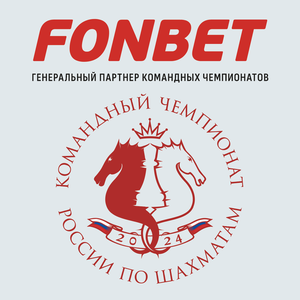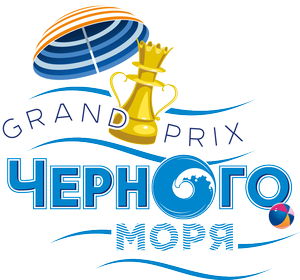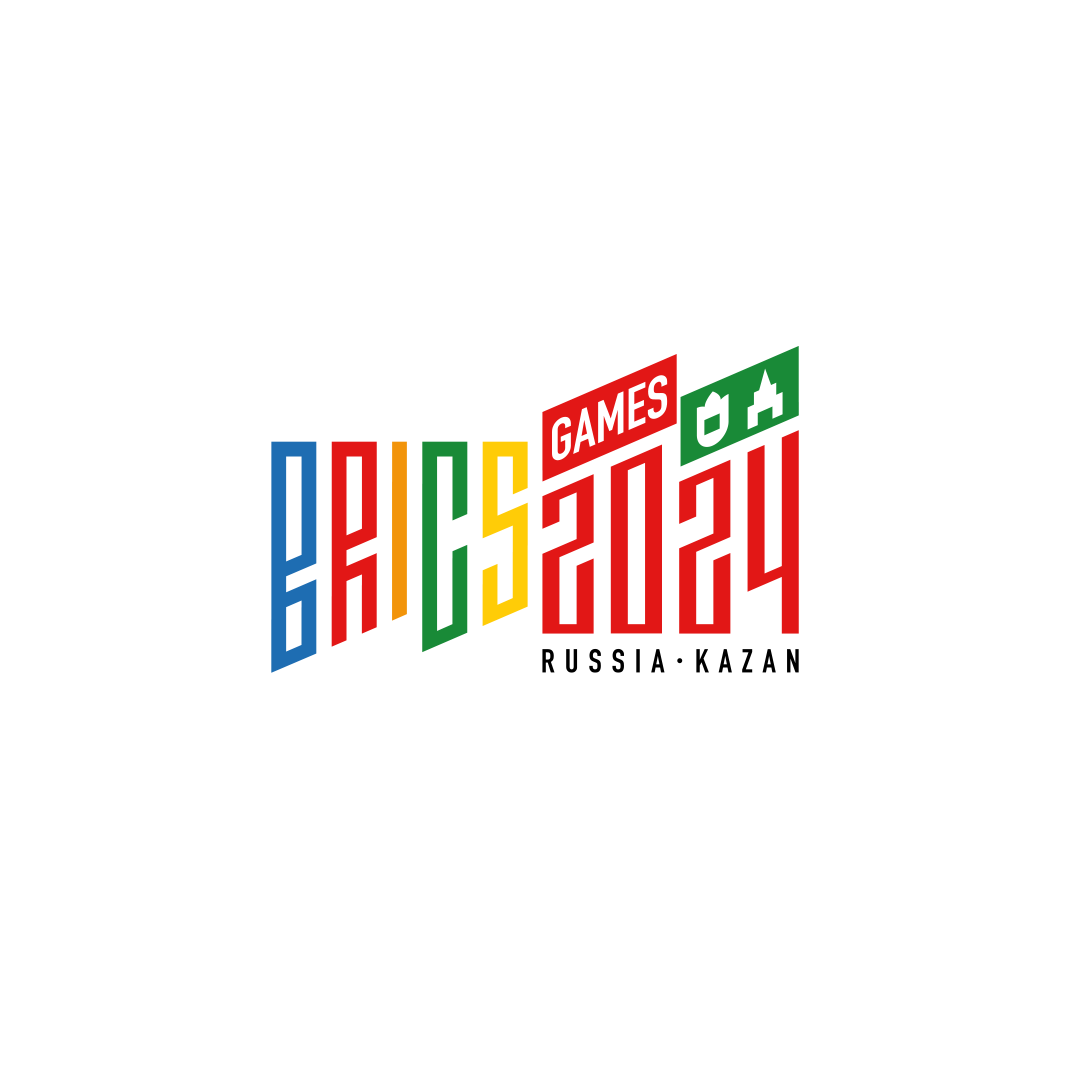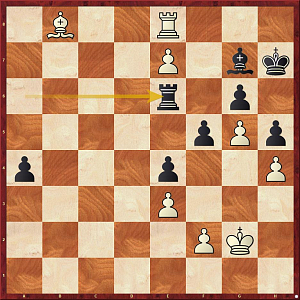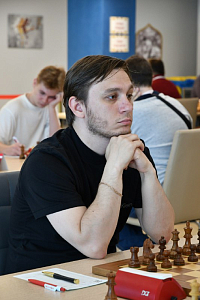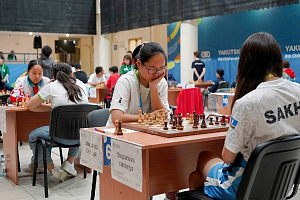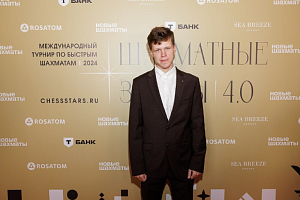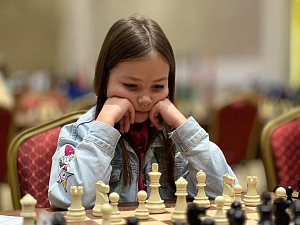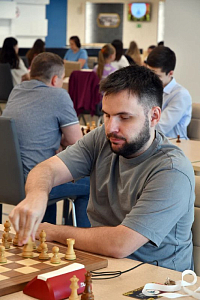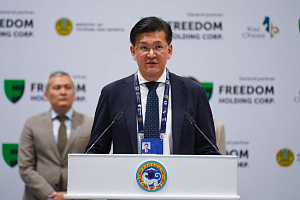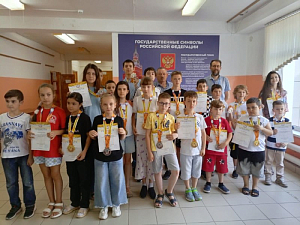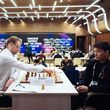Vladimir Staratorzhskiy: Chess is for Normal People
Head of the RCF Arbiters’ and Qualification Commission answers Vladimir Barsky’s questions
– Vladimir Yuryevich, let us talk about the work carried out by the RCF Arbiters' and Qualification Commission that you are in charge of. First, however, tell us briefly about yourself, please.
– My career of a chess arbiter started when I used to live in the Tver Oblast. I used to referee tournaments of a municipal, and then of a regional level; this is how I got my category one. The path to the title of international arbiter was long and winding, and I was guided to it by Mikhail Vitalievich Krjukov. He is actually my teacher in the field of chess arbitration.
I have had flexible work schedule during the past four years, which gave me more time to referee chess tournaments. There is also no lack of work in the RCF Arbiters’ and Qualification Commission (AQC). There I started by performing duties of a deputy head, while the last year and a half had had me working as a committee chairman.
– What do your pay special attention to during your work?
– As of nowadays, Russia has about two hundred arbiters of the national (all-Russian) category. Chess regulations are reworded every so often, and not only they, but also the procedure of assigning categories and titles; there come into existence various orders, regulations, forms, etc. It is necessary for arbiters not to miss any of these updates. We carry out seminars, do everything to make sure that arbiters are in the know of all the latest developments and are guided in their work by the up-to-date regulations. We have young, middle-aged and elderly arbiters working at our competitions. You need to find approach to everyone. While you may have a personal communication with certain people during a seminar, yet others are miles away from you when the seminar is underway. This work is of great importance since there is a lot depending on the linesmen.
– Chess regulations are amended so often that even professional players are not in time to stay abreast. One day you have to promote a passed pawn on the ultimate rank, the next you do not; a move made with both hands is treated as a defeat ... How justified are such frequent changes?
- You know; the Russian regulations follow suit of the FIDE ones. The FIDE Commission simply clarifies some of the regulations and introduces others to keep up with life. Let us take regulations aimed to combat cheating. The older generation of chess players remembers how we were taught to keep a game scoresheet. First you were supposed to record a move on the scoresheet, then to study position one more time to check if you blunder something, and only then to execute your move on the board. Now you are not allowed to record your move in advance. The regulation has been amended out of general anti-cheating considerations. It gives someone an opportunity to view the recorded move and signal you whether it is correct or not. This method - with the move prerecorded - fits really well into the scheme of outside help; therefore, the rule has been reshaped.
The following situation is not unlikely. Nowadays, rapid and blitz chess gain more and more ground. Tournaments of these formats are included into the calendar plans; these competitions are subject to making norms and titles. They play, more often than not, on electronic clocks with time increment per move, whereas certain unscrupulous players, pressed for time, are inclined to press their clock button to add a few seconds to themselves without actually making a move. Therefore, a regulation has been introduced to equal such illegal actions to an impossible move, meaning an immediate defeat in rapid and blitz.
As I said, the regulations are constantly refined, and an arbiter must be extremely well versed in this respect. For this purpose, seminars are carried out and, of course, practice is necessary. Unfortunately, we are unable to assign arbiters to referee every competition making part of the calendar plan of the Russian Chess Federation...
– How do you go about assigning arbiters to competitions?
– Different approaches have been attempted. For example, a chief arbiter was appointed, who would then recruit a team of arbiters. A chief arbiter and his deputies were appointed, the latter inviting arbiters whom they were willing to work with and who they would be responsible for. However, this is not without an element of subjectivism in it. If the arbiters have been recruited by me, then I might evaluate results of their work other than they deserve in reality. In other instances, same arbiters would be invited time and again. Therefore, this system has both pros and cons to it. It is not at all surprising that the RCF shows increased attention towards this issue.
This year has established another practice, when arbiters are free to send applications to the AQC for those competitions they are prepared to referee. Having processed all information, we submit our proposals to the RCF, and upon agreeing on the candidates, the chosen referees are sent invitations and conditions of work.
– Do you have more applicants than you have competitions?
– I would not say so. The past year has covered about 95% of those who were willing to participate in refereeing. Arbiter teams included almost everyone who wanted to be part of them.
– Were they assigned to the competitions of their choice?
– It is basically so. In general, the world of arbiters is rather small, and we know exactly how well the arbiters referee and how well they are prepared. If you stay uninvolved for some 5 years and then decide to send an application for the Russian championship, no one will rush to immediately satisfy it, of course. It is not only an arbiter’s volume of theory that should be up-to-date in all areas, but his/her practice as well. Its basis is formed by refereeing competitions of municipal, regional, and federal levels, the latter being championships of the federal districts. This said, children's tournaments is a good training wheel as requiring regulations be re-explained to parents more than once on a daily basis, and an arbiter, in addition to proper refereeing and decision making, also hones all his mental skills and knowledge of theory. Such referees are up to date with all relevant questions of the hour.
– Does it really matter which region an arbiter represents?
– That is for sure. You have to take into consideration that competitions of the Russian calendar are held in various federal districts. For example, the 2016 Superfinal was held in Novosibirsk, and was refereed by arbiters of the Siberian Federal District. This year's super-final will be refereed by arbiters from St. Petersburg. But, as I said before, invited to the competitions are only those arbiters who apply and possess a valid category.
We have a very large tournament, which is the Russian Youth Championship in Loo. It involves around forty arbiters from almost every country region. This tournament is a kind of cadre foundry. More experienced arbiters share their knowledge and experience with their younger colleagues. The events of the day are constantly discussed, controversial issues sorted out. This is an invaluable experience. Meanwhile, seminars are held for arbiters and participants.
– How many arbiter seminars do you organize annually?
– Only all-Russian seminars are about as many as thirty. We have an AQC’s lecture group, which works very actively. Great seminar work is carried out by international arbiters Alexander Vasilyevich Tkachev and Mikhail Vitalievich Krjukov. In each federal district a seminar is held locally during the children's championships. Therefore, each arbiter has an opportunity to refresh his or her knowledge.
This year we plan to hold the first Internet seminar so as to enable people living far away from chess centers to take part in it. Let us see what comes of it. Development of last lectures is underway at the moment. This seminar is not only for arbiters of high qualification, but also for those of second-third category. They have so much to benefit from getting at the subtleties of refereeing.
Besides the all-Russian seminars, there are many seminars carried out regionally for category 3,2 and 1 arbiters.
– Do seminar results serve as a basis for arbiters to improve on their categories?
– They get certificates. Earlier, we used to issue them in paper form only, while now we keep up an electronic database. A lecturer conducting a seminar is given certificate numbers, and he reports on them by filling in a special form.
– Would a lecturer take tests from the seminar attendees?
– Yes, this is a must. The lists of those arbiters who have passed the qualification stage are published on the RCF website, allowing each arbiter’s history case to be kept track of. A tab, created on the Russian Chess Federation’s webpage, proved of great help in this respect. There you can find which tournaments was refereed by this or that arbiter, including even those events not filed to FIDE for the purpose of ELO points counting up.
– Is an arbiter bound to referee a certain number of tournaments, attend a certain number of seminars, and pass qualification tests prior to improving on his current category?
– Well. This is a common practice; it has always been like this. A certificate, confirming successful test passing and experience of refereeing are mandatory preconditions for improving or validating the current arbiter’s category. The regulations have changed towards easement, making the category rise slightly easier than 2 years ago, but theoretical knowledge and practice are mandatory nonetheless.
– Do you carry out seminars for children as well?
– Yes. This year, a seminar for the participants was held at the initiative of A. Tkachev during the children's championship in Loo. An AQC’s lecturer, international arbiter A. Moskvin, read lectures to children and their parents. This is a very interesting and important topic - instilling basic literacy in children. It is not infrequent for children not to know how to go about demanding a draw based on threefold repetition of fifty-move regulations. Any appealing to an arbiter is permitted on your move only. This is what a player must know! Perhaps, they might manage without certain subtleties, but having a firm grip of chess game regulations is absolutely vital.
– Does the issue of players’ qualification fall within the AQC’s jurisdiction too? Is it involved in double checking of all norms and titles?
– Yes. Making norms of international titles is checked for compliance by the committee. The Russian categories and titles are dealt with at the stage of entering changes into the Russian Unified Sports Classification System. Awarding Russian categories and titles is exercised by the state authorities. Nevertheless, technical management of the Russian Chess Federation checks compliance of all submissions forwarded to the Ministry of Sport of the Russian Federation.
– Though still existing, a number of tournaments with a dubious reputation is said to have dwindled in Russia recently. Do you treat them specially?
– If we knew about any such tournament, we would have given it a very harsh treatment. However, we cannot point unequivocally to this or that tournament as having a dubious reputation. Unfortunately, neither participants, nor organizers or spectators of such events ever address us with their testimonies for lack of civic activism. Meanwhile, the reliable information is scarce. Nevertheless, the AQC uses information from websites and subjects it to a comprehensive verification. In any case, arbiters participating in any such developments are unlikely to have a successful career follow-up. I think that a control and disciplinary committee would stay aloof neither once such information comes within its grasp.
– That is clear. Let us talk now about the problem of cheating. What measures do you take to combat it?
– Well, the problem has advanced to the forefront indeed. In addition to players, cheating can involve both organizers and arbiters. It goes beyond reason, but why rule this out when analyzing various possible cheating mechanisms?
To combat players resorting to computer tips, there exist anti-cheating guidelines developed by FIDE. As for an arbiter, he is always to keep in mind that no participant should be excluded as unlikely to get help from outside. Therefore, a tournament security system is made up of levels, such as metal detectors, frames, jammers, etc.
– And how does it happen in our Russian realities?
– I will tell you about some measures in place nowadays. The most effective means is manual metal and frame metal detectors that detect all metal objects hidden in bags, briefcases, pockets, on the body and so on. This is the easiest method, and it works. As a rule, carrying mobile phones into the playhall is attributed either to indiscipline or forgetfulness. This issue is solved on the spot: an announcement is made, upon which all phones, watches, etc. are handed over to a designated person.
The last time I faced the topic of cheating was at the Alekhine Memorial, which took place in June this year in Voronezh. There, the organizers provided a very good level of security by equipping playhalls with radio signal jammers, disabling the use mobile phones as a means of communication. How would certain cheaters act? They would have an induction loop around their necks leading to a mobile phone. Meanwhile, there is a minute transmitter in the ear, close to the eardrum; it is invisible and inaudible to a person standing nearby. Coupled with an online broadcast, a cheater is in great shape, everything is fine. This method is discussed in detail in the second issue of the magazine for arbiters.
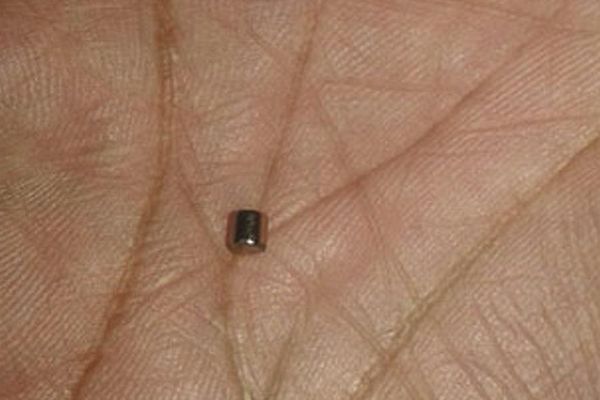
However, the problem is not without its reverse side. When players see something unusual happening, they would get nervous and start looking for reasons not in themselves, but outside. One of the first ideas to cross your mind is that an opponent is helped! This is a nervous situation, and the role of arbiter is very important here: he must nip this mood in the bud!
At the Alekhine memorial I drew attention to unexpected results of some players after round 2. Starting with round 3, they became subject to an increased monitoring, exercised secretly, however. Arbiters and local organizers were involved either.
– Did you look after these players’ behavior during the game, where they went, etc.?
– Yes. After round 3 the situation did not change. The round started after lunch, and in the morning I applied to specialists for counselling as to the possibility of receiving tips with jammers on. They demonstrated me a certain detector and said: if a person has an induction loop, then the device will detect signals at a certain range.
– Does the loop look like a bracelet, like a chain?
– No. This is a wire placed under the shirt. The loop should emit magnetic vibrations, thus enabling an ear microphone to start operating. The phone can be clipped to the belt, tied to the foot - anywhere.
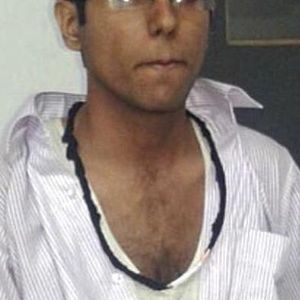
– What about the metal detector?
– This is the point! It will not let a phone be carried into the playhall, and with the jammer operating the phone will not be receiving any signals.
– But was there still a suspicion that people get tips from outside anyway?
– Yes. Many participants approached me. I discussed this issue with Konstantin Landa over the phone and e-mail. After game four, I sent all games to Regan for computer analysis. Mr. Regan asked for more data.
One participant of an obviously low level defeated the masters, and in good style at that. The observations revealed his coming to the tournament in the company of several friends, from two to five people, who would periodically get in and out of the hall. Same system of tips was used as with Feller back at the 2010 Olympiad in Khanty-Mansiysk. One would walk around the hall, waiting for the opponent's move before leaving the hall. Then they would study the position in their mobile phone, upon which another person would be sent to the playhall. However attentive we were, we failed to get at the essence of how the tips reached the player, much to our regret. When the games of this chess player would get online, his assistants would decrease in numbers.
If my memory serves me right, he faced a grandmaster in round five. Seeing that I could not solve the mystery with the system of tips, I just brought all these people out of the playhall, saying they were asking for trouble and forbidding them from entering the venue. Literally two or three moves following this event, this chess player’s position was ruined, and he ended up taking his legitimate place at the bottom of the tournament table.
The negative side of this episode is that we could not label this player as a cheater for lack of solid evidence, neither could we catch him red-handed. On the other hand, the chess world is small, everyone knows each other. The reputation of this chess player is tainted forever.
– As I understand, this was a weak player. And what about a strong chess player resorting to tips, not in every game, but at especially crucial moments? It is impossible to catch him in principle, isn’t it?
– A strong player would usually suffice with one or two tips per game. The main thing is to know the evaluation of the line that he intends to go into - he will figure out the rest himself.
– That is, catching him is very difficult, right?
– I think that if you stick to the anti-cheating guidelines, the number of similar instances will be minimized. One of our measures in Voronezh was turning off broadcasting selectively - for example, for boards one, three and five.
– And all this without warning anybody in advance, right?
– Yes, this is done without any prewarnings. We used to delay broadcasting and reseat players randomly.
– How difficult is it to delay the broadcast from the technical point of view?
– An experienced IT-specialist was working on it. This war is underway. The arbiters with extensive experience know how to act. The cheater is betrayed even by his own behavior. The arbiters have an eye for it, let's put it this way. This work never stops.
– Have there been caught many cheaters at the Russian tournaments over the past two years? Are they proven cheaters with all relevant papers in place?
– There were two or three cases when the cheaters were caught, and all relevant papers are in place.
– This many cheaters only?
– Yes. Let me repeat, the issue is very delicate, psychosis being the reverse side of it. A high-rated player going down to a lower-rated opponent gives rise to immediate suspicions: he cannot play this strong, he must be a cheater! This is a start of witch-hunt. Therefore, it takes a conservative approach to acting and decision-making unless the level of certainty is 100%. Everyone knows the case when they imposed a penalty on a group of girls for writing a complaint letter against Sandu.
Just imagine a master or a grand master heading for a competition with extensive home preparation under his belt, but it works not at all well for him anyway. He sits down to play against a candidate master and is unable to prevail. He starts looking for reasons. Players communicate each other, saying the opponent’s move defies human player’s capabilities! The leading players’ moods are red-hot. They approach arbiters and ask that broadcasting be turned off. I reply, "Write your statement and specify your reasons." All these statements with suspicions of cheating are then forwarded to FIDE.
– That is clear. By the way, there are not a few who still believe that Sandu was just a smart cheater, that is, she was smart in resorting to tips at critical moments of her games only.
– I think this is part of an eternal problem of attack versus defense: first armor is stronger, then the weapons are more powerful, and so on. In our case, cheaters are always a little ahead. The pursuit of prize money tends to take on unimaginable forms. A normal person would not even think of that.
– How effective is Regan’s method from your point of view?
– Although not a proof of cheating in itself, this test is of great value in analyzing the situation. When I sent the games to Regan, I had doubts about three players. I got feedback that two of them had absolutely nothing to do with the outside help, which I believed completely since I had been monitoring these players myself. This said, their performance was clearly higher than expected, which made other participants nervous and adding fuel to the fire. The screening test examines not only coincidence with the first line moves, but other factors related to the game as well. Having seen a game analyzed using this method, I have come to form high opinion of it.
– Should we just make it a universal rule to delay broadcasting by 15 minutes?
– This is one of anti-cheating measures.
– It costs nothing and helps cut off very primitive cheaters. It will also do for those who run to toilets to look up their phones.
– By the way, such people hide not only from the arbiters, but also from their colleagues, whom they rob of money.
The simplest measure, discouraging some 90-odd percent of cheaters, is making a player pass through the metal detector frame. However, modern technologies tend to develop rapidly, and we do not know what is going to happen in a year. It is not unlikely to come up with something like planting silicon chips into the heads of humans. We will not crack the skulls to find this out, will we?
The time may come soon when combatting the cheaters will be undertaken not by arbiters, but by the specialists, specifically trained to do so from the technical and medical points of view. After all, cheating is just one facet of dishonest play.
–It sounds like chess will be best avoided at all
– This conclusion sounds overly pessimistic. All in all, chess is a sport for normal people, and we will continue our work of supporting all competitions of the Russian Chess Federation calendar plan by assigning competent arbiters with firm awareness of regulations and sufficient practice to make sure each tournament results are fair.









